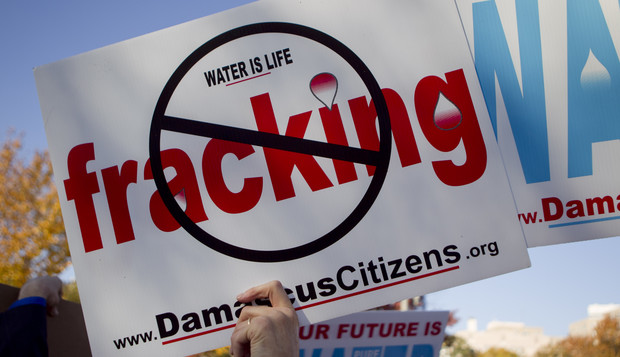http://www.commondreams.org/headline/2014/01/21-4
Published on Tuesday, January 21, 2014
‘Will we disregard the treaties we have with First Nations? Will we continue to allow oil companies to persuade our government to gut laws?’ asks open letter
– Andrea Germanos, staff writer
A group of prominent Canadians has added support to Neil Young’s challenge to Canada’s tar sands exploitation and to the country’s disregard for First Nations treaties.

(Photo: Light Brigading/cc/flickr)In an open letter issued Monday, the musicians, authors and scientists say the Canadian rocker’s campaign has raised questions the government should be forced to answer about whether it will have laws “written by powerful oil companies” or be a nation that respects the environment and the treaties it signed over 100 years ago.
Among the signatories are authors Naomi Klein and Michael Ondaatje, scientist David Suzuki and actor Neve Campbell.
Young’s “Honour the Treaties” tour, which just wrapped up, raised $500,000 to help the Athabasca Chipewyan legal challenges to the tar sands industry, which they say has brought “devastating environmental impacts” to their land.
“The Federal Government’s continued approval of new tar sands mines such as Shell’s Jackpine mine despite the devastating environmental impacts and inadequate consultation with First Nations is insulting and unlawful. We are encouraged and grateful for all the support we are receiving from across Canada. This is just the beginning,” said Chief Allan Adam of the ACFN.
Just ahead of the tour’s closing, the Athabasca Chipweyan First Nations (ACFN) held a teach-in to explain why they need to raise the legal funds, and also explain how their fight is a fight for all of us.
“If you breathe air and drink water, this is about you,” Crystal Lameman told the teach-in audience.
A spokesperson for Prime Minister Stephen Harper responded to Young’s criticisms during his tour by saying that “the lifestyle of a rock star relies, to some degree, on the resources developed by thousands of hard-working Canadians every day.”
In their open letter, the group writes:
“Instead of focusing on Neil Young’s celebrity, Prime Minister Harper should inform Canadians how he plans to honour the treaties with First Nations. This means ensuring the water, land, air, and climate are protected so the Athabasca Chipewyan First Nations and other First Nations communities be able to hunt, fish, gather plants and live off the land. Canada signed a treaty with them 114 years ago, and this must be honoured.
“The world is watching as we decide who we will become. Will we disregard the treaties we have with First Nations? Will we continue to allow oil companies to persuade our government to gut laws, silence scientists, and disassemble civil society in order to allow reckless expansion of the oil sands?”
* * *
The full letter is below:
On his Honour the Treaties tour, Neil Young is doing what poets do—forcing us to examine ourselves. This is hard enough on a personal level and it can be even more difficult when we are being asked to examine the direction in which our country is headed.
The time has come for Canada to decide if we want a future where First Nations rights and title are honoured, agreements with other countries to protect the climate are honoured, and our laws are not written by powerful oil companies. Or not.
Neil’s tour has triggered the Prime Minister’s Office and oil company executives. They have come out swinging because they know that this is a hard conversation and they might lose. But that should not stop the conversation from happening.
Instead of focusing on Neil Young’s celebrity, Prime Minister Harper should inform Canadians how he plans to honour the treaties with First Nations. This means ensuring the water, land, air, and climate are protected so the Athabasca Chipewyan First Nations and other First Nations communities be able to hunt, fish, gather plants and live off the land. Canada signed a treaty with them 114 years ago, and this must be honoured.
The world is watching as we decide who we will become. Will we disregard the treaties we have with First Nations? Will we continue to allow oil companies to persuade our government to gut laws, silence scientists, and disassemble civil society in order to allow reckless expansion of the oil sands?
We are proud to stand with Neil Young as he challenges us all to think about these larger, more profound and humane questions.
Now is the time for leadership and to honour promises that we have made, not personal attacks.
Michael Ondaatje, author, Officer of the Order of Canada
Margi Gillis, dancer,
Member of the Order of Canada
Clayton Ruby, lawyer, Member of the Order of Canada
Dr. David Suzuki, scientist,
Companion of the Order of Canada
Dr. David Schindler, scientist, Officer of the Order of Canada
Stephen Lewis, Companion of the Order of Canada
Joseph Boyden, author
Gord Downie, musician
Sarah Harmer, musician
Naomi Klein, author
Dr. John Stone, scientist
Tzeporah Berman, author
Amanda Boyden, author
Neve Campbell, actor
Wade Davis, author
Dr. Danny Harvey, climate scientist
J.B. MacKinnon, author
Dan Managan, musician
Sid Marty, author
Andrew Nikiforuk, author
Rick Smith, author
John Valliant, author
Ronald Wright, author
